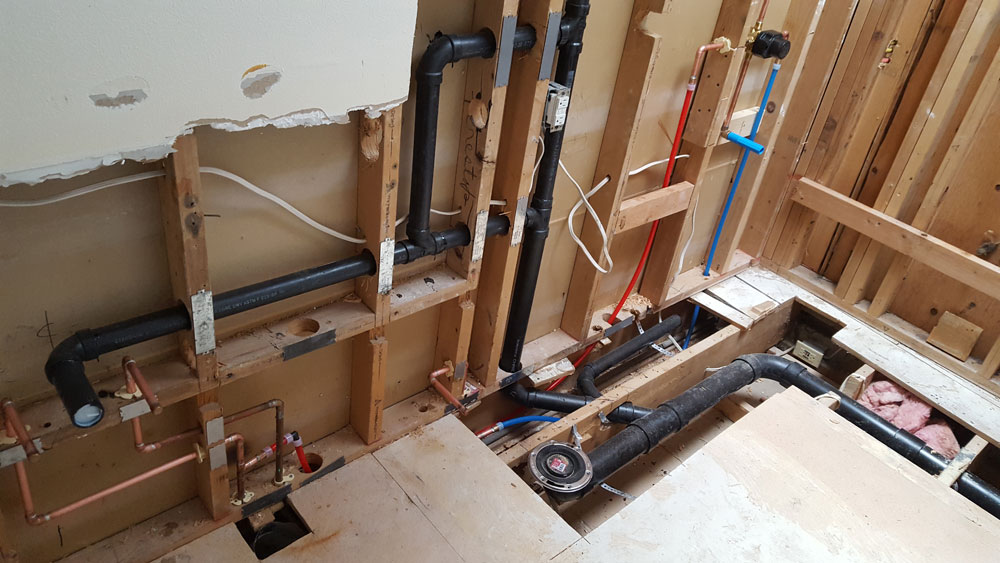Yes, a shower needs to be vented. This is because when you take a hot shower, the steam and moisture created can cause mold growth in your bathroom if not properly removed through ventilation. Additionally, without proper ventilation the humidity created by hot showers can damage wood trim, drywall or other materials used in the construction of your bathroom.
A good venting system will draw out this humid air and replace it with fresh outdoor air. The most common type of vent for a shower is an exhaust fan mounted near the ceiling above the shower that vents directly outdoors.
Having a vent in your shower is beneficial and can help to prevent the build-up of moisture in your bathroom. The steam created by taking hot showers can damage walls, ceilings, and even wooden flooring. Having a fan or vent installed will help to reduce the amount of moisture that builds up and also draw out any odors caused by mildew or mold growth.
Additionally, having proper ventilation in your shower helps to ensure healthy air quality for you and your family.

Credit: terrylove.com
What Happens If You Don’T Vent a Shower Drain?
If a shower drain is not vented, it can cause several issues.
• Standing water in the tub or shower after every use.
• A gurgling sound when running water down the drain.
• Bad odors coming from the drain when not in use.
These are all signs of negative pressure that builds up inside of a pipe with no vent, which can lead to long-term damage and extensive repair costs if left unchecked.
How Should a Shower Be Vented?
A shower should be vented in order to exhaust moisture, odors, and humidity from the bathroom. This is important to prevent mold growth and damage to walls and floors. Here are a few tips on how to properly ventilate your shower:
* Make sure the ventilation fan has enough power for your bathroom size.
* Install an inline fan if necessary, especially when using multiple fans or long duct runs.
* The vent should be directed outdoors rather than into an attic or crawl space.
* Use insulated ducts for exterior vents that pass through unconditioned spaces like attics or garages. Venting correctly will ensure proper air circulation in your bathroom and help keep it free from humidity, odors, and mold growth.
How Far Can a Shower Be from a Vent?
A shower must be located within 25 feet of a vent, so that moisture and humidity can be properly discharged. The following list outlines the criteria for a safe distance:
* Maximum of 25 feet from the vent
* Must have an unobstructed path to the outside
* Should not pass through any walls or ceilings.If these requirements are not met, it is important to install additional ventilation systems in order to ensure safety and proper air circulation.
Do I Need a Vent in a Walk in Shower?
Yes, a vent is needed in a walk-in shower. A vent helps to reduce the humidity levels of the bathroom and prevents mold growth. Here are some reasons why you should install one:
• Reduces humidity levels for better air quality
• Prevents mold growth due to excess moisture
• Helps extend the life of your fixtures by preventing damage from condensation build up.
Installing a vent in your walk-in shower will help keep your bathroom healthy and comfortable.
How to identify and correct a venting problem with a shower drain.
Do All Plumbing Fixtures Need to Be Vented
Yes, all plumbing fixtures (e.g., toilets, showers, sinks) must be vented in order to allow air into the system and prevent a vacuum from forming. This is especially important for fixtures that use hot water because steam can build up and cause safety issues if there is no ventilation. Vents also reduce the noise level of drains and help with drainage by allowing trapped air to escape as water flows through it.
Proper venting is essential for proper operation of any plumbing fixture!
Does a Shower Drain Need to Be Level
Yes, a shower drain needs to be level in order for it to function properly. A level drain will ensure that the water drains away quickly and efficiently without any pooling or overflow. An unlevel drain can cause water to seep out of the sides of the pan or even back up into other parts of your bathroom.
Additionally, an unlevel shower drain can also lead to leaks and water damage if not addressed promptly.
Conclusion
In conclusion, a shower vent is an important part of any bathroom and it’s important to make sure that you have one installed. It helps keep the air in your bathroom fresh, reduce moisture buildup and mold growth, and prevents water damage from occurring. Not only that but it can also help reduce noise levels in your home while providing better air circulation throughout the space.
Installing a vent may seem like an extra expense initially, but when you consider all of the benefits it provides, it quickly becomes apparent that this investment is well worth making for both safety and comfort reasons.
